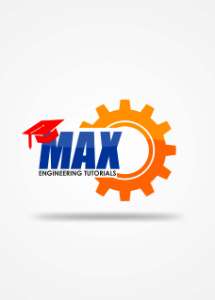Worked examples (8) - Work and Energy | Kinetics of Particles by Energy and Momentum Methods - Engineering Mechanics (Undergraduate Advanced)
SPONSORED Get Personalized Tutoring NowStruggling with a tough concept or looking to advance your skills? Our expert tutors offer one-to-one guidance tailored to your unique needs.
Get instant support, clear explanations, and practical strategies to master even the most challenging subjects. With flexible scheduling and customized learning plans, success is just a session away.
Book your personalized tutoring today and start achieving your academic goals!
Get Personalized Tutoring NowStruggling with a tough concept or looking to advance your skills? Our expert tutors offer one-to-one guidance tailored to your unique needs.
Get instant support, clear explanations, and practical strategies to master even the most challenging subjects. With flexible scheduling and customized learning plans, success is just a session away.
Book your personalized tutoring today and start achieving your academic goals!
Struggling with a tough concept or looking to advance your skills? Our expert tutors offer one-to-one guidance tailored to your unique needs. Get instant support, clear explanations, and practical strategies to master even the most challenging subjects. With flexible scheduling and customized learning plans, success is just a session away. Book your personalized tutoring today and start achieving your academic goals!
 Kinetics of Particles by Energy and Momentum Methods - Engineering Mechanics (Undergraduate Advanced)Analysis of motion of a particle with respect to the forces causing the motion by work-energy and impulse-momentum principles.
Kinetics of Particles by Energy and Momentum Methods - Engineering Mechanics (Undergraduate Advanced)Analysis of motion of a particle with respect to the forces causing the motion by work-energy and impulse-momentum principles.
![[University] Engineering Mechanics - Dynamics](https://media.unidrills.com/avatars/learningTrack/nGEVK89iAlKYeh2_kCgq.JPEG) [University] Engineering Mechanics - DynamicsMaster the principles governing the motion of engineering systems. This learning track provides a complete education in dynamics, systematically building from the kinematics of particles to the kinetics of rigid bodies and culminating in an introduction to dynamic systems and vibration. You will learn to analyse and predict how mechanical systems behave under the influence of forces.
This programme is for undergraduate students in mechanical, aerospace, civil, or related engineering disciplines. It is also essential for practising engineers and applied scientists who require a rigorous, first-principles command of dynamic analysis for their professional work. A prerequisite knowledge of statics, calculus, and vector algebra is assumed.
Upon completion, you will possess the analytical tools to solve complex dynamics problems for particles and rigid bodies using force, energy, and momentum methods. This provides the essential foundation for advanced study in mechanical design, control systems, and structural analysis, and prepares you for demanding technical roles in the engineering sector.
[University] Engineering Mechanics - DynamicsMaster the principles governing the motion of engineering systems. This learning track provides a complete education in dynamics, systematically building from the kinematics of particles to the kinetics of rigid bodies and culminating in an introduction to dynamic systems and vibration. You will learn to analyse and predict how mechanical systems behave under the influence of forces.
This programme is for undergraduate students in mechanical, aerospace, civil, or related engineering disciplines. It is also essential for practising engineers and applied scientists who require a rigorous, first-principles command of dynamic analysis for their professional work. A prerequisite knowledge of statics, calculus, and vector algebra is assumed.
Upon completion, you will possess the analytical tools to solve complex dynamics problems for particles and rigid bodies using force, energy, and momentum methods. This provides the essential foundation for advanced study in mechanical design, control systems, and structural analysis, and prepares you for demanding technical roles in the engineering sector.
Master the principles governing the motion of engineering systems. This learning track provides a complete education in dynamics, systematically building from the kinematics of particles to the kinetics of rigid bodies and culminating in an introduction to dynamic systems and vibration. You will learn to analyse and predict how mechanical systems behave under the influence of forces. This programme is for undergraduate students in mechanical, aerospace, civil, or related engineering disciplines. It is also essential for practising engineers and applied scientists who require a rigorous, first-principles command of dynamic analysis for their professional work. A prerequisite knowledge of statics, calculus, and vector algebra is assumed. Upon completion, you will possess the analytical tools to solve complex dynamics problems for particles and rigid bodies using force, energy, and momentum methods. This provides the essential foundation for advanced study in mechanical design, control systems, and structural analysis, and prepares you for demanding technical roles in the engineering sector.